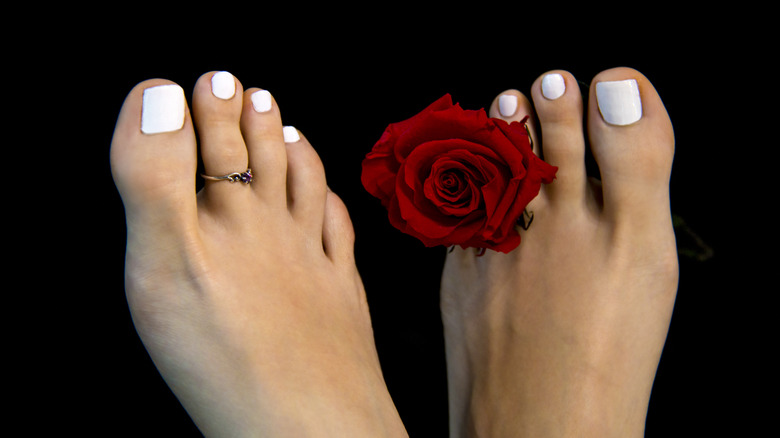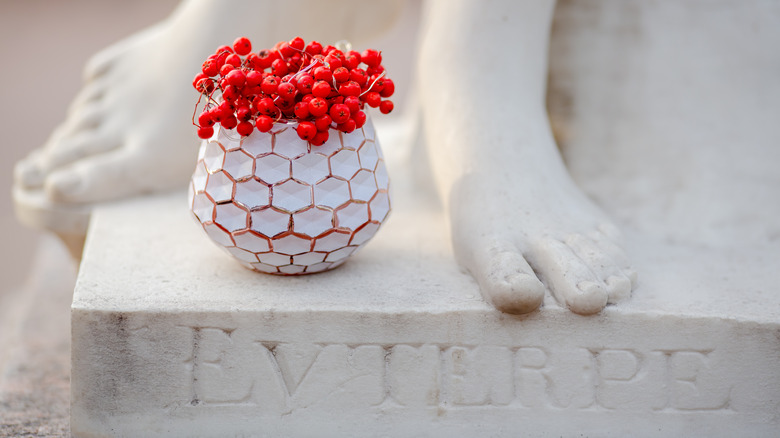What It Really Means When Your Second Toe Is Longer Than Your Big Toe
The internet lit up a few years back when Meghan Markle stepped outside in trendy sandals and revealed that her second toes are actually longer than her big ones. It turns out that Markle's big reveal shed some light on what's actually a super common condition, called Morton's toe. Jacqueline Sutera, DPM, Vionic Innovation Lab expert, and podiatrist at City Podiatry in New York City, told Health that "It's found in about 20% of the population." It's very likely that, if you don't have Morton's toe yourself, you know someone who does.
Morton's toe — also known as Greek foot because classic Greek statues often showcase beautifully sculpted, long second toes — is just a variation on normal foot shape. It's not considered a deformity or a condition that requires any correction. Maybe it's a bit counterintuitive, but it occurs not because the second toe is too long, but because the metatarsal bone of the big toe — which connects your toes to the back of your foot — is actually too short (via Verywell Fit).
Morton's toe is actually really common
The fact that it's common doesn't mean it's guaranteed to be problem-free, though. That shorter first metatarsal bone means that there's more pressure, when walking or running, on the second toe's longer, thinner metatarsal bone. This can lead to foot pain and other issues like corns, calluses, and even hammertoe (via Healthline). Dr. Sutera adds "Toenail damage, ingrown nails, and nail injury is also very common from having a longer second toe, especially if you wear high heels, pointy, narrow, tight shoes, or are a runner" (via Health).
It you have Morton's toe, the best way to take care of your feet is to wear comfortable shoes with good support, and plenty of room in the toe box, even going a half size up in shoe size if necessary. Dr. Sutera adds "When we're at a shoe store, it's very common to measure for the great toe. You should measure for your longest toe. Over time, cramming your second toe into a shoe that doesn't fit well can cause pain, arthritis, and hammering."
On a positive note, legend has it that owning a Greek foot is a sign of great intelligence and leadership capabilities. That trade off just might make it worth wearing roomy shoes.


